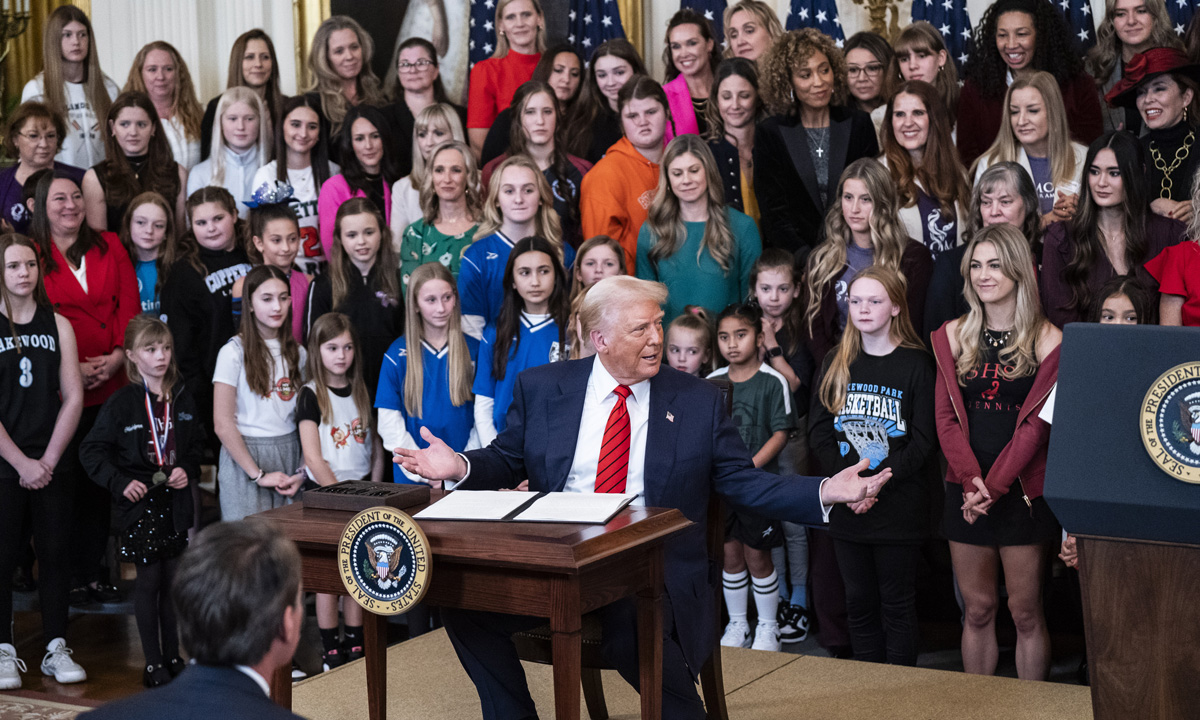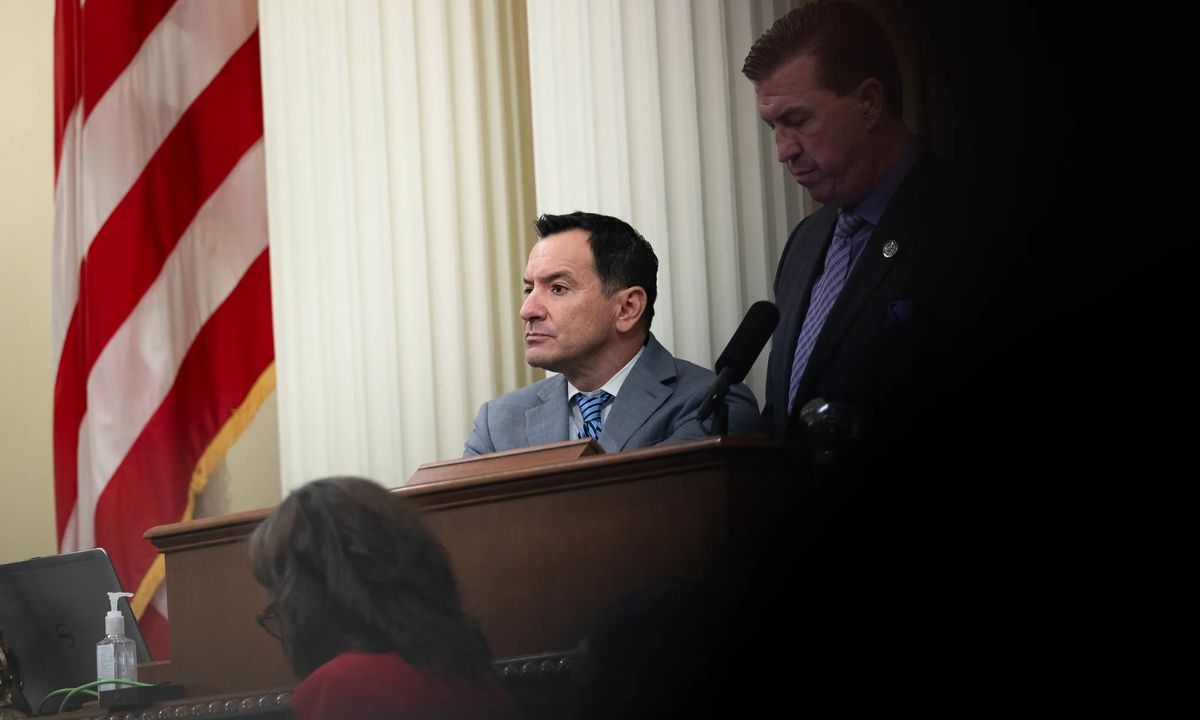The U.S. Supreme Court, whose conservative majority has adopted a more pessimistic stance on gender identity issues, will hear the case of red states’ right to exclude transgender girls from participating in female sports.
Transgender girls contested state prohibitions that would have barred them from playing on women’s teams in two cases from West Virginia and Idaho. As their cases developed, lower courts took the students’ side and let them to compete on their current teams.
Conservatives view the court’s decision to hear the cases as a chance to definitively state that Title IX does not apply to gender identity, settling a contentious national debate. This view is supported by the Trump administration’s aggressive actions and the court’s recent ruling upholding Tennessee’s ban on gender-affirming care for trans youth.
The revelation was hailed by the Independent Women’s Forum as a turning point for American women and girls.
LGBTQ student advocates want the rulings from the lower courts to remain in place. Lindsay Hecox, a student at Boise State University, and Becky Pepper Jackson, who is currently a high school student, were told by the U.S. Court of Appeals for the Fourth and Ninth circuits that their claims against the states would probably be successful.
Idaho was the first state to forbid trans females from participating in gender-neutral sports with its 2020 Fairness in Women’s Sports Act. In the event of a disagreement, a clause in Idaho law mandates that pupils submit to a medical examination to confirm their sex. According to Brian Dittmeier, director of LGBTQI+ Equality at the National Women’s Law Center, that is a larger issue for all females.
A year later, the West Virginia Save Women’s Sports Act was passed. According to the Movement Advancement Project, similar laws are in place in 25 additional states; two states, Alaska and Virginia, have laws that also prohibit transgender girls from participating in girls’ sports. By attempting to deny federal funding to blue states and educational institutions who allow transgender girls to participate in female sports, President Donald Trump and Education Secretary Linda McMahon have further escalated the issue.
According to Dittmeier, transgender people’s dignity is being attacked. He claimed that a decision in support of West Virginia and Idaho would provide states the chance to defend discriminatory legislation.
Under pressure from McMahon, the University of Pennsylvania agreed to ban trans women from playing on women’s teams the same week the court decided to hear the cases. The university apologized to swimmers who lost against transgender swimmer Lia Thomas and deleted her records as part of the agreement.
States not backing down
California announced on Monday that it will not abandon its trans-inclusive sports regulations or offer an apology, while the administration’s case against Maine over its trans athlete policy will proceed to trial next year. When a trans girl won gold in two events at a state track and field tournament in May, the state attracted global notice.
However, the state also established a temporary regulation that permitted additional girls to participate even if they were previously ineligible. According to the rule, cisgender girls could win any medal that would have been awarded to them had trans athletes not participated. The trans contestant, A.B. Hernandez, thereby shared the podium with other first-place finishers.
Depending on how the cases turn out, more states may look into that type of accommodation, according to Doriane Coleman, a law professor at Duke University. Although she is in favor of transgender rights, she believes that elite sports should be given extra consideration.
Although it’s difficult to defend keeping a trans girl off of an after-school sports team, she contended that limitations make sense in competitive sports.
Advocates have been preventing trans kids, their parents, their doctors, and their coaches from wanting anything other than to play women’s and girls’ sports throughout this time, she claimed.
She cited studies that demonstrate the overall advantage trans female athletes have over cisgender females is always maintained, even though hormones and puberty blockers reduce some of that advantage.
Others contend that socioeconomic factors, such access to better coaching and training options, also play a part and that there is insufficient data to conclude that trans girls consistently have an edge.
In 2023, the Biden administration drafted a Title IX sports rule in an attempt to reach a compromise in the discussion. Students in elementary school and the majority of middle schoolers would have been able to participate in gender-neutral sports. According to the concept, districts may argue for the exclusion of trans athletes from high school if they could demonstrate how doing so would have met a significant learning goal. The proposed rule was withdrawn by officials prior to Trump’s inauguration.
Trump signed an executive order stating that Title IX and the federal government in general acknowledge only two sexes and that they cannot be changed just days after he took office.
The Supreme Court will now consider the matter after ruling in 2020 that it is unlawful to discriminate against LGBTQ employees in the workplace based on their sex. West Virginia and Idaho both want the court to rule on whether the equal protection clause of the Constitution is violated by forcing pupils to compete with the sex they were assigned at birth. Another question raised by the West Virginia case is whether Title IX permits governments to bar transgender girls from participating in girls’ sports.
According to Dittmeier of the National Women’s Law Center, Skrmetti v. U.S. and the trans sports cases differ significantly.In that instance, the court maintained a prohibition on providing trans adolescents with gender-affirming care, leaving states free to decide how to proceed. The procedures may be medically required, according to proponents of trans kids, and a ban would be against the Equal Protection Clause.
The court ignored whether the legislation discriminated against children and teenagers based on their sex when it decided in Tennessee’s favor. The state argued that the restriction was based on age or the use of hormones or puberty blockers, and the court agreed.
In sports situations, the court will not be able to sidestep the topic of sex. According to Dittmeier, the states must bear a greater burden of proof to defend the discriminatory practice. For instance, Pepper-Jackson has identified as a girl since the third grade and has a modified birth certificate. Judge Toby Heytens wrote in the Fourth Circuit’s decision last year that giving B.P.J. a choice between not playing sports and playing exclusively on boys’ teams isn’t really an option at all.









